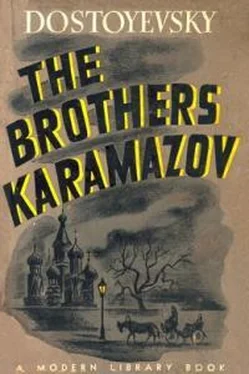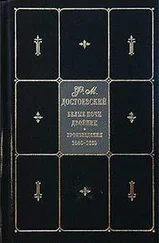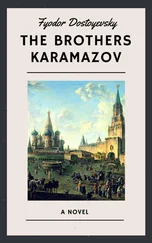Alyosha said to himself: “I can’t give two roubles instead of ‘all,’ and only go to mass instead of ‘following Him.’ ” Perhaps his memories of childhood brought back our monastery, to which his mother may have taken him to mass. Perhaps the slanting sunlight and the holy image to which his poor “crazy” mother had held him up still acted upon his imagination. Brooding on these things he may have come to us perhaps only to see whether here he could sacrifice all or only “two roubles,” and in the monastery he met this elder. I must digress to explain what an “elder” is in Russian monasteries, and I am sorry that I do not feel very competent to do so. I will try, however, to give a superficial account of it in a few words. Authorities on the subject assert that the institution of “elders” is of recent date, not more than a hundred years old in our monasteries, though in the orthodox East, especially in Sinai and Athos, it has existed over a thousand years. It is maintained that it existed in ancient times in Russia also, but through the calamities which overtook Russia—the Tartars, civil war, the interruption of relations with the East after the destruction of Constantinople—this institution fell into oblivion. It was revived among us towards the end of last century by one of the great “ascetics,” as they called him, Païssy Velitchkovsky, and his disciples. But to this day it exists in few monasteries only, and has sometimes been almost persecuted as an innovation in Russia. It flourished especially in the celebrated Kozelski Optin Monastery. When and how it was introduced into our monastery I cannot say. There had already been three such elders and Zossima was the last of them. But he was almost dying of weakness and disease, and they had no one to take his place. The question for our monastery was an important one, for it had not been distinguished by anything in particular till then: they had neither relics of saints, nor wonder–working ikons, nor glorious traditions, nor historical exploits. It had flourished and been glorious all over Russia through its elders, to see and hear whom pilgrims had flocked for thousands of miles from all parts.
What was such an elder? An elder was one who took your soul, your will, into his soul and his will. When you choose an elder, you renounce your own will and yield it to him in complete submission, complete self–abnegation. This novitiate, this terrible school of abnegation, is undertaken voluntarily, in the hope of self–conquest, of self–mastery, in order, after a life of obedience, to attain perfect freedom, that is, from self; to escape the lot of those who have lived their whole life without finding their true selves in themselves. This institution of elders is not founded on theory, but was established in the East from the practice of a thousand years. The obligations due to an elder are not the ordinary “obedience” which has always existed in our Russian monasteries. The obligation involves confession to the elder by all who have submitted themselves to him, and to the indissoluble bond between him and them.
The story is told, for instance, that in the early days of Christianity one such novice, failing to fulfill some command laid upon him by his elder, left his monastery in Syria and went to Egypt. There, after great exploits, he was found worthy at last to suffer torture and a martyr’s death for the faith. When the Church, regarding him as a saint, was burying him, suddenly, at the deacon’s exhortation, “Depart all ye unbaptized,” the coffin containing the martyr’s body left its place and was cast forth from the church, and this took place three times. And only at last they learnt that this holy man had broken his vow of obedience and left his elder, and, therefore, could not be forgiven without the elder’s absolution in spite of his great deeds. Only after this could the funeral take place. This, of course, is only an old legend. But here is a recent instance.
A monk was suddenly commanded by his elder to quit Athos, which he loved as a sacred place and a haven of refuge, and to go first to Jerusalem to do homage to the Holy Places and then to go to the north to Siberia: “There is the place for thee and not here.” The monk, overwhelmed with sorrow, went to the Œcumenical Patriarch at Constantinople and besought him to release him from his obedience. But the Patriarch replied that not only was he unable to release him, but there was not and could not be on earth a power which could release him except the elder who had himself laid that duty upon him. In this way the elders are endowed in certain cases with unbounded and inexplicable authority. That is why in many of our monasteries the institution was at first resisted almost to persecution. Meantime the elders immediately began to be highly esteemed among the people. Masses of the ignorant people as well as men of distinction flocked, for instance, to the elders of our monastery to confess their doubts, their sins, and their sufferings, and ask for counsel and admonition. Seeing this, the opponents of the elders declared that the sacrament of confession was being arbitrarily and frivolously degraded, though the continual opening of the heart to the elder by the monk or the layman had nothing of the character of the sacrament. In the end, however, the institution of elders has been retained and is becoming established in Russian monasteries. It is true, perhaps, that this instrument which had stood the test of a thousand years for the moral regeneration of a man from slavery to freedom and to moral perfectibility may be a two–edged weapon and it may lead some not to humility and complete self–control but to the most Satanic pride, that is, to bondage and not to freedom.
The elder Zossima was sixty–five. He came of a family of landowners, had been in the army in early youth, and served in the Caucasus as an officer. He had, no doubt, impressed Alyosha by some peculiar quality of his soul. Alyosha lived in the cell of the elder, who was very fond of him and let him wait upon him. It must be noted that Alyosha was bound by no obligation and could go where he pleased and be absent for whole days. Though he wore the monastic dress it was voluntarily, not to be different from others. No doubt he liked to do so. Possibly his youthful imagination was deeply stirred by the power and fame of his elder. It was said that so many people had for years past come to confess their sins to Father Zossima and to entreat him for words of advice and healing, that he had acquired the keenest intuition and could tell from an unknown face what a new–comer wanted, and what was the suffering on his conscience. He sometimes astounded and almost alarmed his visitors by his knowledge of their secrets before they had spoken a word.
Alyosha noticed that many, almost all, went in to the elder for the first time with apprehension and uneasiness, but came out with bright and happy faces. Alyosha was particularly struck by the fact that Father Zossima was not at all stern. On the contrary, he was always almost gay. The monks used to say that he was more drawn to those who were more sinful, and the greater the sinner the more he loved him. There were, no doubt, up to the end of his life, among the monks some who hated and envied him, but they were few in number and they were silent, though among them were some of great dignity in the monastery, one, for instance, of the older monks distinguished for his strict keeping of fasts and vows of silence. But the majority were on Father Zossima’s side and very many of them loved him with all their hearts, warmly and sincerely. Some were almost fanatically devoted to him, and declared, though not quite aloud, that he was a saint, that there could be no doubt of it, and, seeing that his end was near, they anticipated miracles and great glory to the monastery in the immediate future from his relics. Alyosha had unquestioning faith in the miraculous power of the elder, just as he had unquestioning faith in the story of the coffin that flew out of the church. He saw many who came with sick children or relatives and besought the elder to lay hands on them and to pray over them, return shortly after—some the next day—and, falling in tears at the elder’s feet, thank him for healing their sick.
Читать дальше












